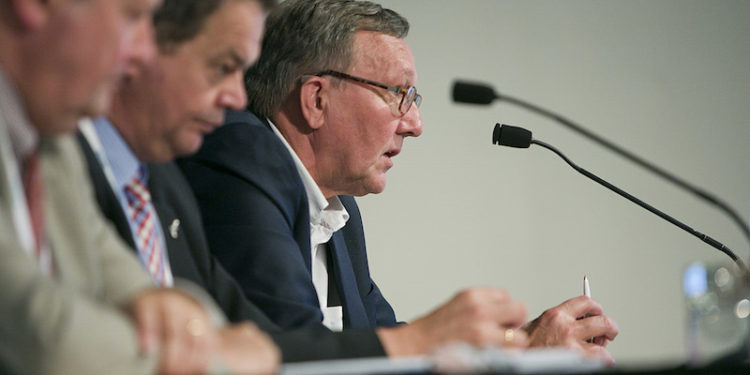Speaking at last week’s IIFET conference in Aberdeen, Niels Wichmann of the Danish FPO said that there has been a rush to implement the landing obligation, driven partly by fears over cod, and will lead to a a chaotic situation in 2019.
‘We could have learned a lot more before doing this,’ said Niels Wichmann of the Danish FPO, which represents 34 associations and 724 vessels that are around two-thirds of the Danish fishing sector, include all of the demersal fishery.
‘There has been real or unreal concern about cod going back to the early 2000s, with cod measures and fears that cod were about to disappear and that has been the story ever since. Yet now we are in the process of getting MSC certification for cod,’ he said, describing the ramped-up fears for cod as a revenue opportunity for NGOs.
‘The political reaction has been too fast. The Baltic came under the Landing Obligation in 2015, but 2016 has been much more difficult for the North Sea, the Skagerrak and the Kattegat. It’s a political patchwork, which we don’t like. But we have to follow our political masters,’ he said.
Niels Wichmann commented that so far little change has been seen to pelagic and industrial fisheries, all of which are fairly clean fisheries, and there is not yet enough experience of North Sea demersal fisheries under the Landing Obligation to be able to make a real evaluation.
‘What we expect is that in 2017 the Landing Obligation will begin to bite. It will get worse in 2018 and 2019 will be chaotic. That’s the short version, but that’s how we see it,’ he said.
‘Can we soften this? Can we group species? Do we need to have a TAC for every species?’ he asked, adding that there are 48 species commercial species fished in the North Sea.
‘And how does Brexit affect all this? That’s anybody’s guess at the moment.’









